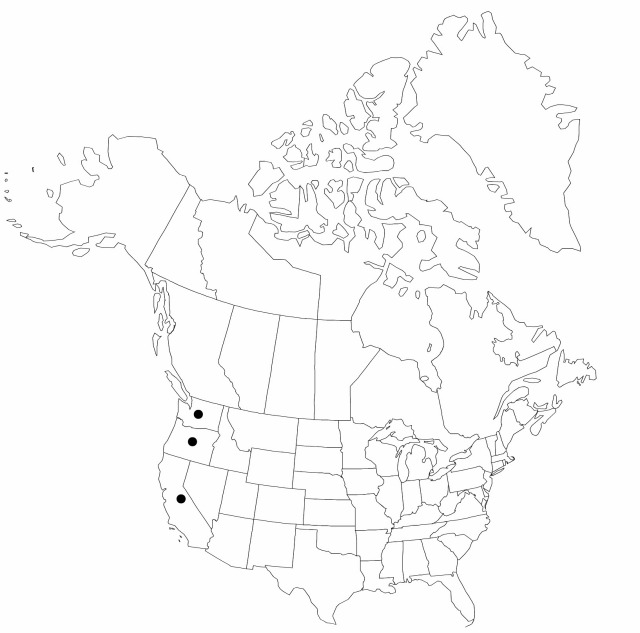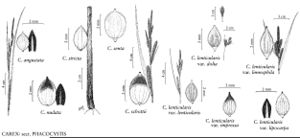Carex nudata
in S. Watson, Bot. California 2: 241. 1880.
Plants cespitose, flowering from first-year shoots. Culms acutely angled, 35–70 cm, glabrous. Leaves: basal sheaths redbrown; sheaths of proximal leaves bladeless, scabrous, fronts with redbrown spots, prominently ladder-fibrillose, apex redbrown, U-shaped; blades hypostomic, 2–4 mm wide, papillose abaxially. Inflorescences: proximal bract shorter than inflorescence, 1–2 mm wide. Spikes erect; staminate 1–2; pistillate 2–4; proximal pistillate spike 2–4.5 cm × 5–6 mm, base cuneate. Pistillate scales dark redbrown to black, shorter than perigynia, apex obtuse, awnless. Perigynia ascending, pale-brown with redbrown spots on apical 1/2, often blackish apically, 5–9-veined on each face, somewhat flattened, loosely enclosing achenes, thin-walled, ovoid or ellipsoid, 2.2–4 × 1.2–1.8 mm, leathery, dull, apex rounded or obtuse, papillose; beak redbrown, 0.1–0.3 mm. Achenes not constricted, dull. 2n = 70, 72.
Phenology: Fruiting Jun–Jul.
Habitat: Dense tussocks in rocky streambeds
Elevation: 0–1500 m
Distribution

Calif., Oreg., Wash.
Discussion
Carex nudata is also a member of the C. stricta group and is distinguished from sympatric members of the group by flowering from first-year shoots and having very narrow inflorescence bracts and somewhat elongated, heavily veined perigynia. It has a very distinctive growth form and habitat, dense tussocks among rocks in streambeds.
Selected References
None.
Lower Taxa
"shortened" is not a number.
